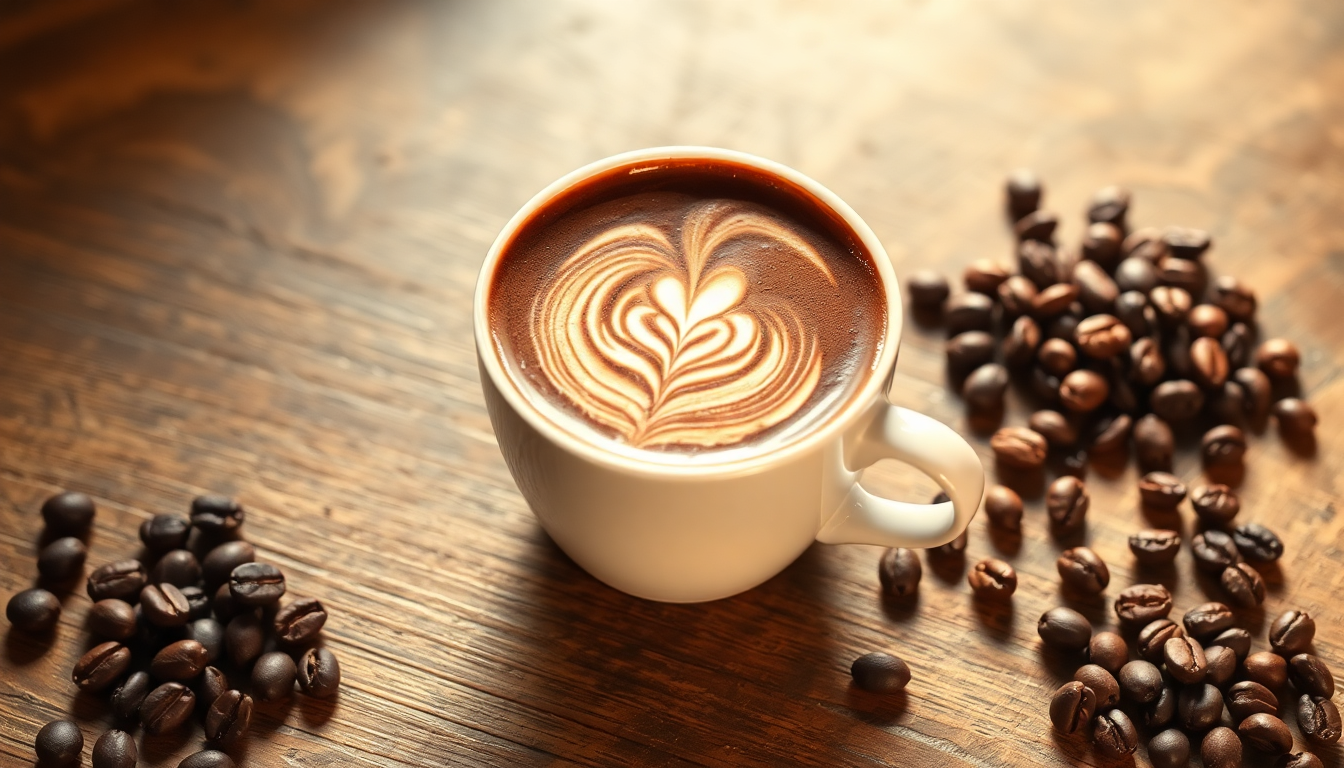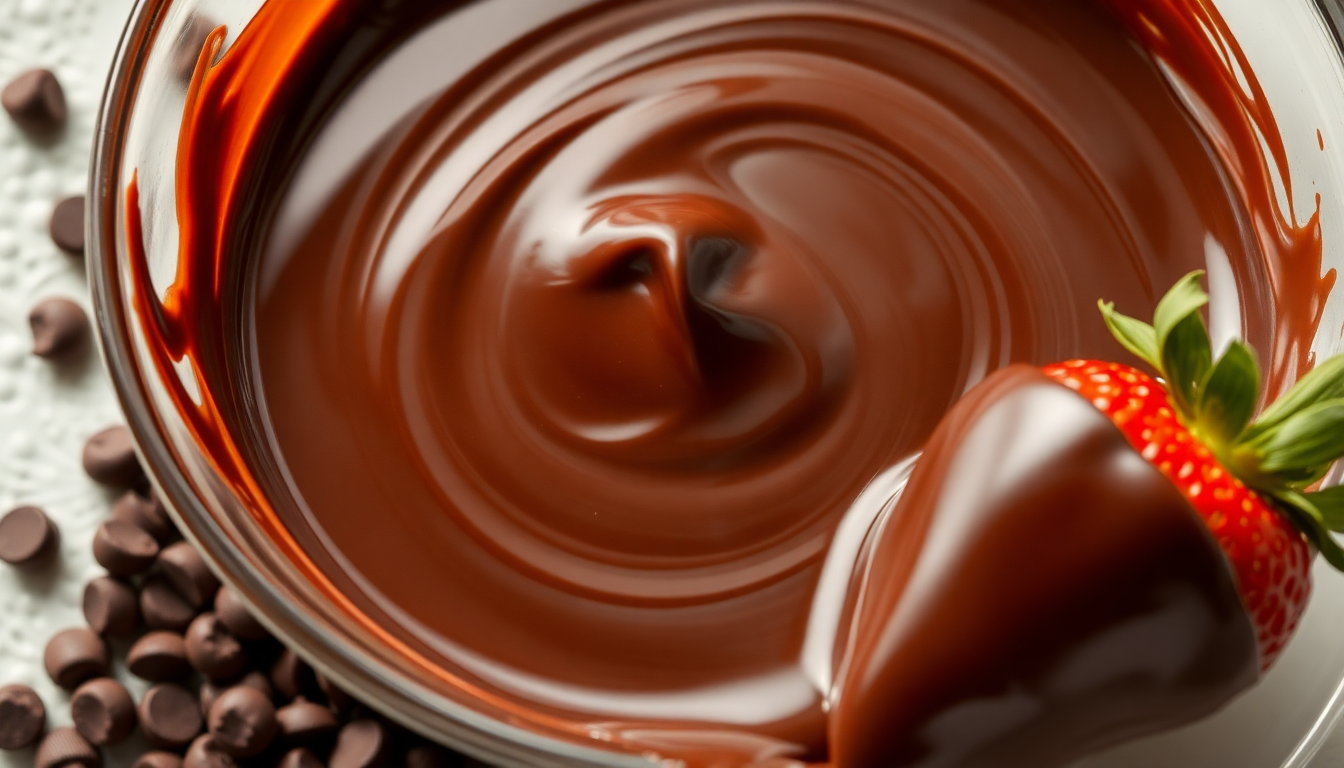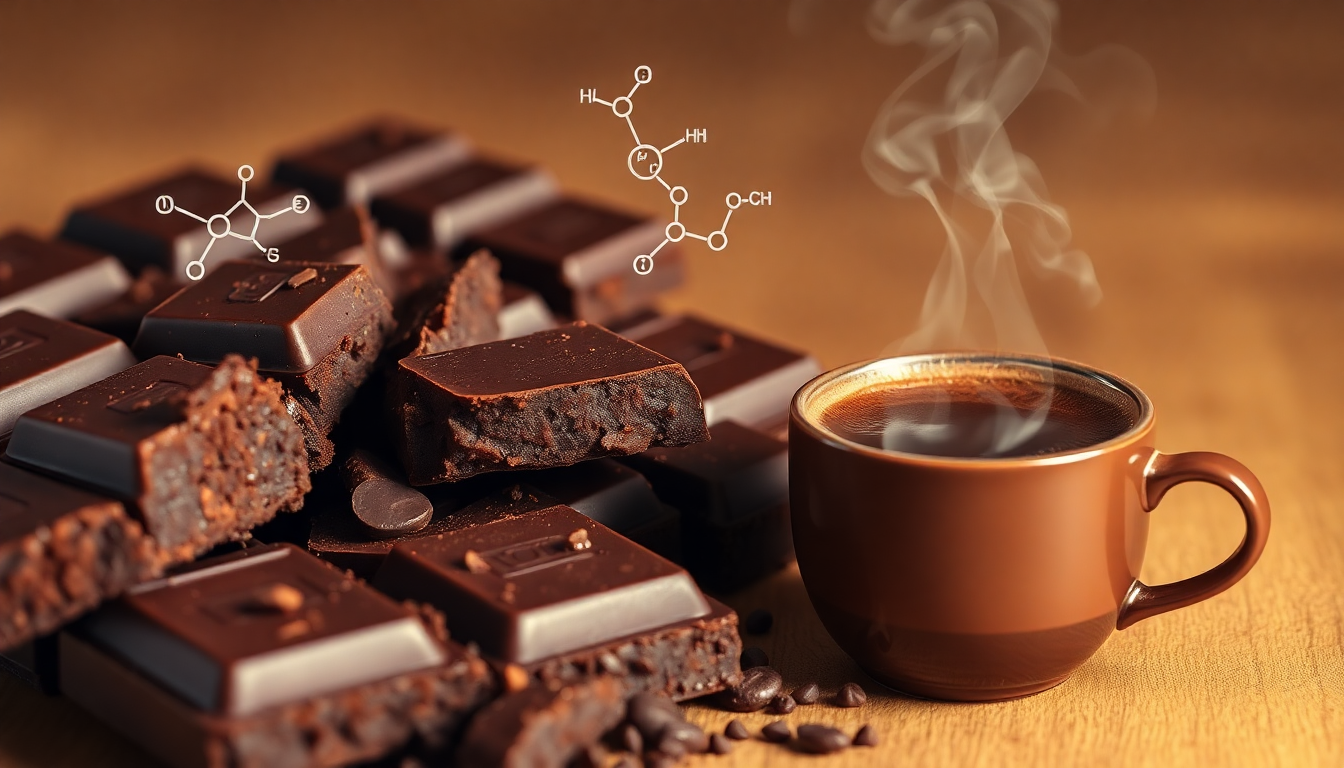
Does Mocha Chocolate Have Caffeine? Understanding Your Chocolate-Coffee Fix
The Short Answer: Yes, It Does
Yes, mocha chocolate does contain caffeine. The term "mocha" generally refers to a combination of chocolate and coffee flavors, whether in a beverage, candy, dessert, or other food product. Both chocolate and coffee naturally contain caffeine, though in varying amounts depending on the specific product and preparation method.
If you're sensitive to caffeine or monitoring your intake for health reasons, understanding the caffeine content in mocha products is important. Let's explore what mocha actually is, how much caffeine it contains, and what factors affect its caffeine content.
What Is Mocha, Exactly?
The term "mocha" has evolved significantly from its origins. Originally, "mocha" referred to coffee beans that came from the port city of Mokha (Al Mokha) in Yemen, which was a major coffee trading center from the 15th to 18th centuries. These Yemeni coffee beans were known for having natural chocolate undertones in their flavor profile.
Today, mocha commonly refers to one of two things:
-
Mocha as a beverage: A mocha (or caffè mocha) is an espresso-based drink made with steamed milk and chocolate syrup or cocoa powder. It's essentially a chocolate-flavored variant of a caffè latte that combines the rich flavors of coffee and chocolate.
-
Mocha as a flavor: The term is also used to describe the combination of chocolate and coffee flavors in various products like ice cream, candy, cake, and other desserts.
Caffeine Content in Mocha Products
The caffeine content in mocha products varies widely depending on the specific item and its preparation. Let's look at the main sources:
Mocha Coffee Drinks
A standard mocha coffee drink typically contains:
- 80-100 mg of caffeine per serving for a regular 8-ounce mocha with a single shot of espresso
- 126-130 mg of caffeine for a mocha with a double shot of espresso
- 150-175 mg of caffeine for a larger (12-16 oz) mocha from coffee shops like Starbucks
The primary source of caffeine in a mocha drink is the espresso. A single shot of espresso contributes approximately 63-65 mg of caffeine, while the chocolate component adds only a small amount (1-5 mg) of additional caffeine.
Mocha-Flavored Chocolate Products
For chocolate products with mocha flavoring:
- Dark chocolate mocha candy: Typically contains 5-20 mg of caffeine per serving, depending on the cocoa content
- Milk chocolate mocha candy: Usually has 1-10 mg of caffeine per serving
- White chocolate mocha products: Contains minimal to no caffeine from the chocolate (since white chocolate has no cocoa solids), though some products may add coffee or espresso for flavoring
Factors Affecting Caffeine Content in Mocha Chocolate
Several factors influence the amount of caffeine in mocha chocolate products:
1. Coffee Content
- Added coffee or espresso: Some mocha chocolate products contain actual coffee or espresso powder for flavor, significantly increasing the caffeine content
- Coffee extract: Products using coffee extract typically have less caffeine than those with actual coffee
- Coffee flavoring: Artificial coffee flavorings may contain little to no caffeine
2. Chocolate Type and Cocoa Content
- Dark chocolate: Contains more caffeine than milk chocolate, with 70-85% dark chocolate having around 20-25 mg per ounce
- Milk chocolate: Contains less caffeine, typically 3-10 mg per ounce
- White chocolate: Contains no caffeine as it's made with cocoa butter but no cocoa solids
3. Geographic Origin of Cocoa Beans
Interestingly, the origin of the cocoa beans used can significantly impact caffeine content:
- South American cocoa beans (from Ecuador, Peru, and Venezuela) can contain up to twice as much caffeine as beans from other regions
- West African cocoa beans generally have lower caffeine content
4. Serving Size
- Larger serving sizes obviously contain more caffeine
- Check portion sizes on packaging to accurately assess caffeine intake
Comparing Mocha Caffeine to Other Sources
To put mocha chocolate's caffeine content in perspective, here's how it compares to other common caffeine sources:
| Product | Typical Caffeine Content |
|---|---|
| Mocha coffee drink (8 oz) | 80-100 mg |
| Regular brewed coffee (8 oz) | 95-200 mg |
| Espresso (1 oz shot) | 63-65 mg |
| Black tea (8 oz) | 40-70 mg |
| Dark chocolate (1 oz) | 12-20 mg |
| Milk chocolate (1 oz) | 3-10 mg |
| Cola soda (12 oz) | 30-40 mg |
Theobromine: Chocolate's Other Stimulant
When discussing caffeine in mocha chocolate, it's worth mentioning theobromine, another stimulant found in chocolate. While mocha products contain caffeine from both coffee and chocolate sources, the theobromine from chocolate creates additional stimulant effects.
Theobromine is chemically similar to caffeine but has different effects on the body:
- It's a milder stimulant than caffeine
- It has a longer-lasting effect
- It acts as a vasodilator (widens blood vessels)
- It can contribute to the "mood-lifting" effect of chocolate
A typical dark chocolate bar contains about 250 mg of theobromine, while caffeine content is much lower at around 20 mg. This combination of stimulants contributes to the unique energizing yet smooth effect that mocha products can provide.
Understanding Mocha Product Labels
If you're trying to monitor your caffeine intake, interpreting product labels for mocha items can be challenging. Here are some tips:
- "Mocha flavor" doesn't guarantee caffeine: Some products labeled as mocha-flavored may use artificial flavorings that contain no actual coffee or caffeine
- Check the ingredients list: Look for coffee, espresso, coffee extract, or cocoa solids
- "Coffee inclusions" or "espresso pieces" on a chocolate label typically indicate added caffeine
- Contact manufacturers: For precise caffeine content, consider reaching out to the product manufacturer directly
Who Should Monitor Mocha Caffeine Intake?
While mocha products generally contain less caffeine than a regular cup of coffee, certain groups should be mindful of their consumption:
- People with caffeine sensitivity
- Pregnant women (recommended to limit caffeine to 200 mg per day)
- Those with certain heart conditions
- People with anxiety disorders
- Children (particularly younger children, who should have limited caffeine)
- Those with sleep disorders
Low-Caffeine and Caffeine-Free Mocha Alternatives
If you love mocha flavor but want to reduce caffeine intake, consider these alternatives:
- Decaf mocha coffee drinks: Most coffee shops offer decaf espresso options for mochas, reducing caffeine to around 5-10 mg per serving
- Mocha-flavored products with caffeine-free coffee substitutes: Some products use chicory or other coffee alternatives
- White chocolate mocha products without coffee: These generally have minimal caffeine (but check ingredients for added coffee flavor)
- Homemade mocha treats: Control the ingredients by making your own mocha-flavored desserts with low-caffeine or caffeine-free alternatives
The Bottom Line
Mocha chocolate does contain caffeine, but the amount varies significantly depending on the specific product. Coffee-based mocha beverages contain much more caffeine (primarily from the coffee component) than mocha-flavored chocolate candies or desserts.
For most adults, the caffeine in mocha chocolate products is well within safe consumption levels, even for those moderating their caffeine intake. However, if you're very sensitive to caffeine or need to strictly limit your consumption, it's best to check specific product information or choose caffeine-free alternatives.
Whether you're enjoying a mocha latte or savoring a piece of mocha-flavored chocolate, understanding the caffeine content helps you make informed choices about your chocolate-coffee indulgences.

Claire Bennett
I'm Claire, a chocolate lover and artisan based in a small town where I run a tiny home kitchen dedicated to exploring everything chocolate. From single-origin dark bars to creamy ganache and handmade truffles, I find joy in working with all types of chocolate. I believe chocolate has a story, and I love bringing that story to life through humble, heartfelt creations.



Leave a comment
This site is protected by hCaptcha and the hCaptcha Privacy Policy and Terms of Service apply.